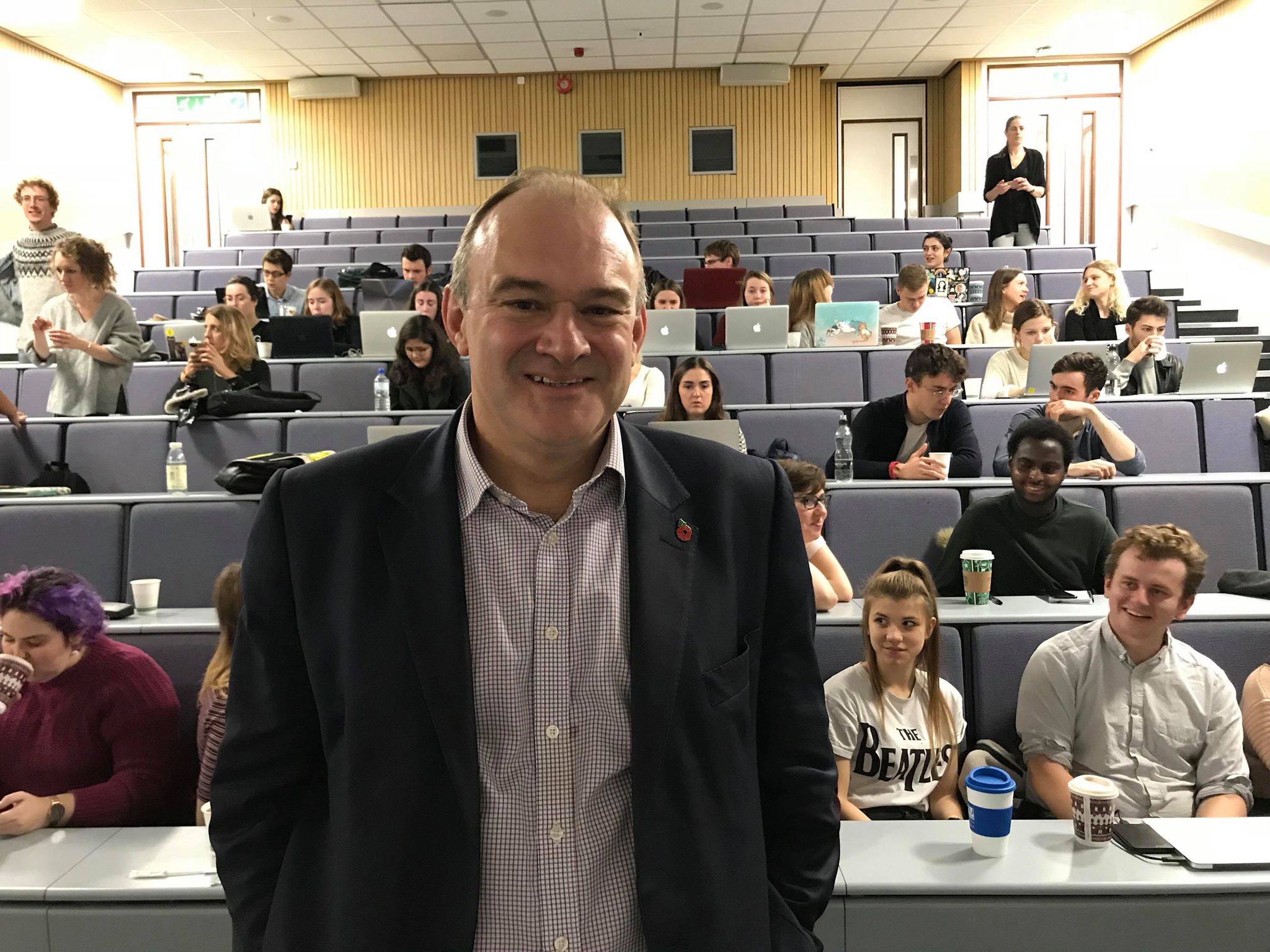Liberal Democrat MP for Kingston and Surbiton Sir Ed Davey addressed Kingston University students on Friday to discuss the problems with Brexit and his hope for a second referendum.
Earlier in the week, Prime Minister Theresa May revealed her proposed Brexit deal, sparking chaos in the government as Brexit Secretary Dominic Raab resigned, along with several other prominent conservatives.
Davey passionately opposes leaving the European Union and told Kingston students: “It seems completely obvious to me that we should be making Europe work, for all the European Union’s faults.
“It’s a fantastic way of dealing with international issues, be they climate change, trade and commerce or how we manage our fisheries.
“You can influence other countries by being there, other members of the European Union, but also other countries outside the European Union, such as the United States, India or Brazil.
“They know that if we are at the table of the European Union, we are more influential. So the world thinks we are nuts for wanting to become less influential, and of course they’re right.”
Davey, who served as Secretary of State for Energy and Climate Change from 2012-2015, blamed the outcome of the Brexit vote on a poorly run Remain campaign and the deceit of the Leave campaign, among other things.
He said: “Frankly, the Remain campaign in 2016 was shocking, appalling. David Cameron and George Osbourne did not allow others in and they made it a Conservative Party campaign.
“There are two emotional arguments to remain, it seems to me. One is peace and the Tory party did not put the message of peace forward.
“The other argument that needs to be made is how you deal with criminals.
“Our membership of the European Union has enabled us to tackle criminals more effectively, with things like the European Arrest warrant, EUROPOL, European Criminal Records Information system and the SS2 Information System.
“There is an emotional argument for staying in, which is let’s get these nasty people, who are making you and your family and your community less safe. I do not think those arguments were made.”
Davey said that the Leave campaign vocalised two distinct emotional messages – sovereignty and tackling immigration.
Critics have accused the Leave campaign of deceiving voters in the 2016 Referendum, a key example being the now infamous Brexit bus, which claimed the UK paid £350 million a week to the EU (a figure later shown to be wildly exaggerated).
Davey said: “The lies and deceit and malpractice from the leave side was on an industrial scale.
“So I am alarmed that the decision has been based on myths, lies, electoral malpractice and without the case for staying in the European Union being properly made.”
Davey said that many voted to leave because of discontent with the UK and its government, rather than because they were well informed about the UK’s position within the EU.
Indeed, he pointed out that in the 48 hours after the referendum, the top google searches were “What is the EU?” and “What is Brexit?”
When asked about solutions for tackling this unhappiness and insecurity, Davey said: “We have huge disparities of wealth in this country.
“You have to go to sign up to an agenda of reasonable development and social justice, where you are seen to be caring about the UK and not just bloody London.
“Our country is made up of far more cities, towns and villages, but sometimes the Westminster elite don’t give that impression.
“So it is our vocabulary and some real economic changes we need to make.”
Davey is a key member of the People’s Vote campaign calling for a second referendum and he addressed criticism that such a vote would be undemocratic.
He said: “No one said what Brexit was in 2016, because they could not. The deal wasn’t done.
“I believe in having votes on things that are factual, that are true, so that people can make their minds up on actual facts.
“So I think the democratic case for having a referendum is to say, do you want this deal now we know what Brexit is and do you want to stay in the European Union now we know why we should?
“I think the democratic case for that is overwhelming.”
The UK is scheduled to leave the European Union on 29 March 2019.





